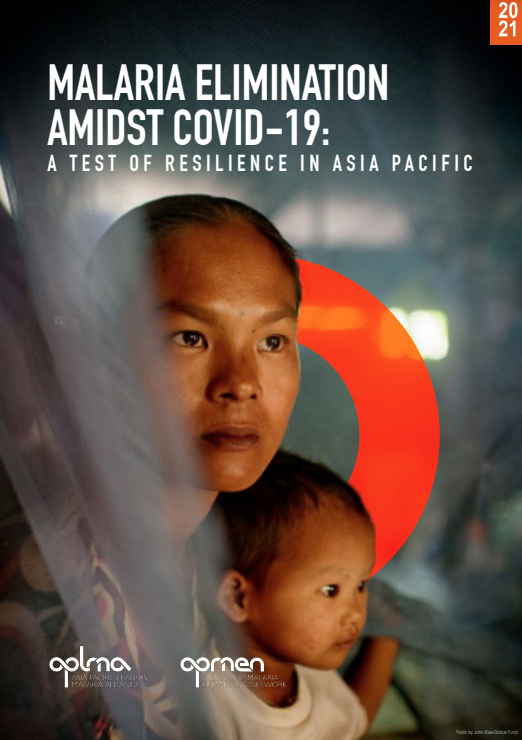Malaria Elimination Amidst COVID-19: A Test of Resilience in Asia Pacific
Asia Pacific Malaria Elimination Network (APMEN), Singapore; Asia Pacific Leaders Malaria Alliance (APLMA), Singapore
Published: 13/12/2021
Malaria Elimination Amidst COVID-19: A Test of Resilience in Asia Pacific
Over the past decade, countries in Asia Pacific have more than halved the number of annual malaria cases and moved towards eliminating the disease.
However, as the COVID-19 pandemic made its way across the region in early 2020, countries quickly found themselves faced with unprecedented challenges and disruptions to malaria-related services. As priorities suddenly shifted to the evolving emergency, national malaria programmes saw their capacity to deliver on malaria control, surveillance and case management strained, while lockdowns, border closures and the fear of contracting COVID-19 further challenged progress. Health systems—many already fragmented before the pandemic—faced the dual burden of combatting malaria while also managing new COVID-19 infections. Humanitarian crises that erupted during the pandemic—as they did in Myanmar and Afghanistan—further compounded these burdens.
Comparing the experiences from across the region throughout the pandemic so far, however, three core areas of remarkable resilience emerge: strong leadership commitment, timely adaptation of malaria interventions, and the successful integration of COVID-19 and malaria responses.



